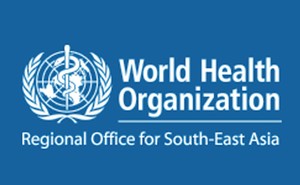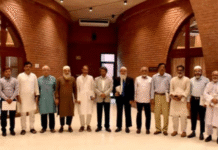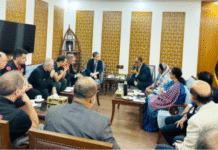Health ministers of 11 countries, including Bangladesh, will convene in Dhaka to attend WHO’s south-east Asia regional meeting to discuss key health issues of the region.
The UN health agency says the Sep 9 meeting will be the 32nd meeting of the health ministers’ of this region.
The annual meeting of the statutory body, Regional Committee, will follow, ending on Sep 12.
The World Health Organisation works across the world, divided into six regions.
Bangladesh, Bhutan, DPR Korea, India, Indonesia, Maldives, Myanmar, Nepal, Sri Lanka, Thailand and Timor-Leste are the members of its south-east Asia region (SEARO).
Bangladesh is hosting this meet for the second time.
The first such meeting in Bangladesh was held in 2006.
Officials say organising such event helps Bangladesh strengthen its health system.
Prime Minister Sheikh Hasina will inaugurate the meeting.

WHO Director-General Dr Margaret Chan and Regional Director for South-East Asia Dr Poonam Khetrapal Singh will be present with WHO experts at both meetings.
WHO says the health ministers’ meet serves as a forum for exchanging views and discussing important regional health issues.
“It fosters cooperation among Member States and helps to forge bilateral and multi-country cooperation in the field of health”.
This year, the ministers’ will focus on vector-borne diseases and are expected to adopt the “Dhaka Declaration” on this issue.
Globally, WHO estimates a billion people suffer from vector-borne diseases, and over a million die of them each year.
Millions of people are at risk in the South-East Asia Region.
Bangladesh also suffers from six mosquito-borne diseases: malaria, kala-azar, filariasis, and Japanese encephalitis, dengue, and Chikungunya.
WHO says most of these diseases are either preventable or curable, and the ministers will look “at a more comprehensive and inter-sectoral approach for their prevention, control and elimination”.
The 67th session of the Regional Committee that meets once a year will review the progress and regional implications of the World Health Assembly resolutions.
The committee will take up some technical issues of the region that include civil registration and vital statistics, traditional medicine, and WHO’s global campaign to cut the harmful use of alcohol to prevent and control lifestyle diseases.
It will also discuss the strengthening of emergency and essential surgical care and anaesthesia as a component of universal health coverage, and a regional strategy to improve the education and training of the health workforce.
Bangladesh will also organise different sessions on the sidelines.
Autism will be one of the key issues, Md Azam-E-Sadat, deputy secretary (WHO) of the ministry of health told bdnews24.com.
Prime Minister Sheikh Hasina’s daughter Saima Hossain Wazed will speak in the session on Sep 11.
Known by her nickname, Putul, in Bangladesh, Saima is a US-licensed school psychologist.
She spearheads autism and other neuro-developmental disorders in Bangladesh.
It was her initiative Bangladesh placed a resolution at WHO on autism which was passed this year.
Bangladesh is expecting to make a regional action plan on autism spectrum disorder and other neuro-developmental disorders.
Dhaka believes the plan with regional cooperation will guide the development of national action plan.










